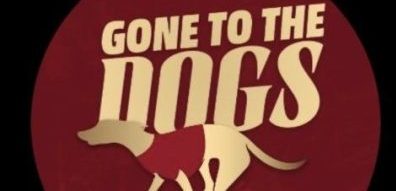Following the shock death earlier today of greyhound Salacres Punch, the GBGB has issued the following advice to all trainers:
Kennel Cough
Trainers are being advised to keep alert for coughing or off colour greyhounds. Coughing greyhounds must not be raced, trialled or exercised whilst they are coughing, and it is advised that 10-14 days be allowed after the coughing has stopped before starting fast exercise.
Canine Haemorrhagic Pneumonia (CHP)
Trainers and owners are also being asked to be vigilant for signs of more severe disease, called Canine Haemorrhagic Pneumonia. The signs to look out for are sudden onset fever, panting and off-colour.
Important facts
The time from first signs to being life-threatening can be as short as 6-8 hours. Your local veterinary surgeon must be contacted as soon as possible since the disease is fatal without intensive emergency treatment. Please do not try to medicate these cases – only prompt and intensive therapy by a veterinary surgeon offers the best chance for recovery.
Signs of CHP:
- Off colour
- Panting
- Fever
- Coughing is NOT a feature of CHP
- Blood from the nose/mouth is sometimes seen.
Brief notes:
- CHP is not a severe form of Kennel Cough. Kennel Cough does not become CHP. The two disease are separate conditions.
- CHP appears randomly in Greyhounds, but is rare. The GBGB sees up to two cases per month, but regularly 2-3 months will go by with no cases.
- The germ “Strep zoo” is carried by many Greyhounds (up to 30% in a kennel may be carriers).
- Carrier Greyhounds pass the germ around to vaccinate other Greyhounds.
- Usually only one death occurs – in rare cases a second case will appear and always within 48 hours of the first case.
- It is difficult to pass the disease CHP to other Greyhounds because they are likely to be already immune.
General Information
Information sheets for trainers and veterinary surgeons are available on the GBGB website.
The GBGB does monitor and investigate disease outbreaks, but this relies on timely reporting of any problems so that control procedures can be put into place as soon as possible. Trainers and owners are encouraged to report any disease problems to the GBGB in order to limit the spread of disease and to allow the gathering of as much information as possible. The GBGB will pay for laboratory investigations of respiratory disease or sudden death provided they are made aware of the problem as soon as possible. Retrospective payments are not made.
General disease advice can be from your local veterinary surgeon, or from the GBGB on 0207 822 0900 or via the Disease Surveillance Reporting line on 0207 822 0929. Your stipendiary steward should also be contacted.













